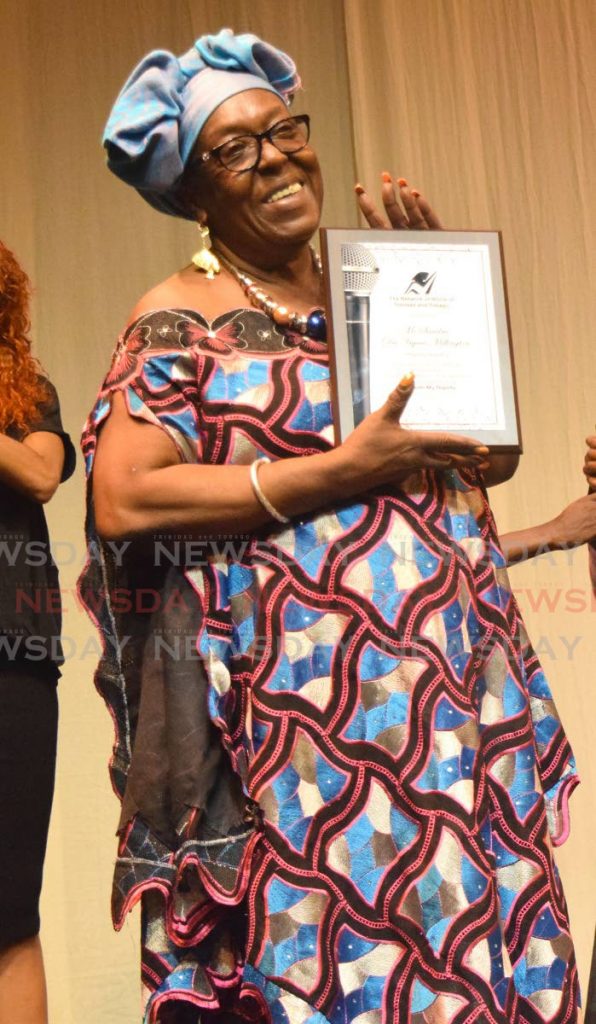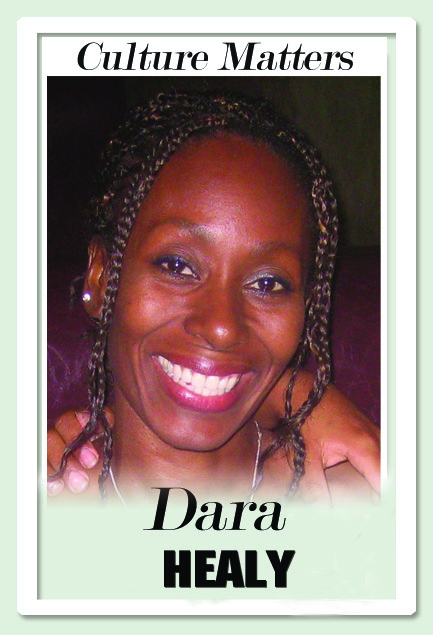Singing Sandra's Carnival spirit

“AFRICAN masquerades represent spirits – hence jumbi, from Kikongo ‘nzambi’ or spirit and the Kimbundu ‘nzumbi’, spirit of a dead person; jumbi being a Caribbean term for ghost, revenant.”
ProfMaureen Warner Lewis
SINGING Sandra is someone I would call a spirit. More specifically a Carnival spirit. Our history is filled with them – Shadow, Bradley, Attila, Velasquez, Kitchener, Lady Trinidad, Bailey...artistes who emerge from a portal, disturb the status quo, then leave the rest of us to deal with the after effects of their oh too brief presence.
We should have listened when she took off her shoes and planted her bare feet on the ground to sing Voices from the Ghetto.
“Mothers does just hold their head and bawl/And them woman stronger than a wall/A big pusher eyeing she daughter/Son in jail for manslaughter/Too bad for he, he ain't named Brad Boyce/No bail, that's the black man's choice...”
In this Carnival season, spirits walk. Ms Sandra, drawn to the Spiritual Baptist faith and then the Ifa/Orisa belief system, understood that. She would have known that her voice was the connecting force between ancient energies, divinity and the now. In her bare feet, with headtie and serious expression, she was trying to warn us.
In TT, we regularly discuss the fact that Carnival masqueraders are making noise and disturbing the spirits of enslaved buried in the Savannah, a former plantation. In conversation, we talk about the spirit of Carnival coming and leaving – normal.
Machel Montano in Jumbie stated clearly that “Is ah vibe coming out ah we soul/Everybody take up yuh role/This year we playing brave and bold/Jumbies coming out ah dey hole.” In this society, with traditions from Hindu to Congo and Warao, we already accept that we exist within and amongst realms.
Carnival became a safe space to talk about the practice of communing with the spirit world to achieve success in the human realm. Shadow commented, “You looking like a boo boo/But all the women love you/Is obeah, you working obeah.”
SuperBlue, then Blue Boy, used Baptist rhythms, bells and guttural breathing in Jingay, describing ways of manipulating spiritual energies to “get a woman/Get a good man/Fix you business/Make more interest.”
And Mighty Sparrow laughed at Melda, who he said was trying to trap him into marriage by going to an obeah man – “All you do, you can’t get through/I still ent go marry to you.”
As you can see, much of the commentary was negative, suspicious and even derogatory. This would have undoubtedly been influenced by colonial and Christian attitudes towards African spirituality.
Additionally, we fear what we do not understand. Interestingly, as the socio-political environment began to change, so too did the narratives and opinions about African spirituality. Offering a completely different perspective on the crossing of realms, Calypso Rose celebrates the power of being able to stay connected with the ancestral world.
“Through meditating/I could see my enemies advancing/Poor thing, they don’t know/That I does see them before they see me.”
This recognition of the crossing between realms is not new to our creative space. ProfJeff Henry recalls that Beryl McBurnie would ensure that before creating a dance founded in African spirituality, her dancers “were required to visit shrines where these ceremonies were held. These visits were also required for the Bongo which was mainly held during ‘wakes’ and the ‘Belair’ which was a festive dance held on special holidays.”
Although indigenous peoples were not considered "inhabitants" by colonials, the Black Indian masquerade is testament to the contribution of nations such as Warao and Kalinago to the portrayal, in addition to its African components. The intricate face markings, secret language and costuming all have spiritual significance.
Over time, the arrival of East Indians, Chinese and other peoples deepened the sense of ritual in the mas. This includes the Soumayree portrayal based on Hindu rites and the Dragon Mas filled with tales of conquest, triumph and mysticism. For instance, the Key Imp in the Dragon masquerade carries an oversized key which “is used to open the gates of Hell for the underworld to enter the earth.”
“Jumbie...Jumbie dem/Out ah body back to yuhself now.” Our modern-day griots, the calypsonians and increasingly, the soca artistes, understand that Trinidad and Tobago Carnival connects with many realms. We pay respects to the visionary Singing Sandra, barefoot on the hallowed Carnival stage, pleading with us to see what she already knew. The Carnival portal has opened; let us be careful how we treat the spirits among us.
Dara E Healy is a performance artist and founder of the Indigenous Creative Arts Network – ICAN.



Comments
"Singing Sandra’s Carnival spirit"